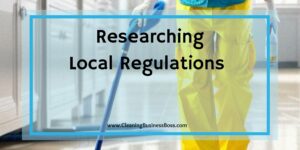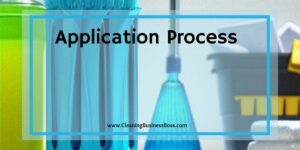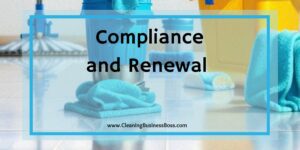Starting a cleaning business can be a rewarding venture, but before you can begin, it’s crucial to obtain the necessary licenses and permits. A cleaning license serves as proof that you meet the requirements and regulations set by your local authorities.
Obtaining a cleaning license is crucial for starting your cleaning business. Research local regulations, meet prerequisites like business registration and insurance coverage, complete the application process accurately, and maintain compliance for a successful license acquisition.
Types of Cleaning Licenses
Before you begin the journey of obtaining a cleaning license, it is crucial to familiarize yourself with the different types of cleaning licenses available. Understanding the specific licenses required is vital as they can vary based on your location and the type of cleaning services you intend to offer.
General cleaning licenses encompass a broad range of cleaning services, including basic cleaning tasks for residential or commercial properties. Specialized cleaning licenses, on the other hand, focus on specific niches within the cleaning industry. For instance, if you plan to offer services such as carpet cleaning or window cleaning, you may need specialized licenses that validate your expertise in these areas.
Janitorial licenses are often required for individuals or businesses that provide cleaning services to larger commercial properties or institutions. These licenses may have additional requirements to ensure compliance with specific regulations governing janitorial services.
To determine the type(s) of license(s) you need for your cleaning business, thorough research of the regulations in your area is essential. Local government offices, licensing authorities, or business development organizations can provide the necessary information and guidance regarding the specific licenses required for your business operations. By understanding the different types of cleaning licenses available, you can ensure that you pursue the appropriate licensing path for your specific cleaning services.
Researching Local Regulations

To successfully obtain a cleaning license, thorough research into the specific requirements in your area is paramount. Start by contacting your local government offices or visiting their websites to gather comprehensive information on licensing regulations, permits, and associated fees. These resources serve as valuable repositories of knowledge regarding the application process, prerequisites, and additional documentation needed to secure a cleaning license.
By delving into this research, you can gain a solid understanding of the steps involved in obtaining a license and ensure that you meet all the necessary criteria. Take note of any specific forms or paperwork required, as well as any deadlines for submission. Additionally, familiarize yourself with any prerequisites, such as business registration or liability insurance, that must be fulfilled before applying for a cleaning license.
Arming yourself with this knowledge through thorough research provides a strong foundation for navigating the licensing journey smoothly and ensures compliance with local regulations.
Meeting Prerequisites
To qualify for a cleaning license, certain prerequisites must be fulfilled. These prerequisites may include:
Business Registration
Registering your cleaning business with the appropriate government agencies is a crucial step in establishing your legal entity and ensuring compliance with local regulations. This process varies by jurisdiction, but typically involves submitting necessary forms, documentation, and fees to the designated authority. By registering your business, you create a distinct legal entity separate from your personal identity, which provides various benefits such as liability protection and credibility in the eyes of potential clients.
Moreover, many licensing authorities require proof of business registration as a prerequisite for obtaining a cleaning license. It is essential to research the specific requirements and procedures in your area to ensure a smooth and successful registration process. Taking this step not only sets a solid foundation for your cleaning business but also demonstrates your commitment to operating within the legal framework.
Insurance Coverage
Obtaining liability insurance is a critical aspect of protecting your cleaning business from potential risks and liabilities. Accidents, property damage, or injuries can occur during the course of your cleaning services, and liability insurance provides financial protection in such situations. Many licensing authorities require proof of insurance coverage before issuing a cleaning license, as it demonstrates your commitment to responsible business practices.
When selecting an insurance policy, consider factors such as coverage limits, types of risks covered, and premium costs. Liability insurance not only safeguards your business but also instills confidence in your clients, assuring them that you are prepared to handle any unforeseen circumstances. Prioritizing insurance coverage helps mitigate potential financial and legal consequences, giving you peace of mind and protecting your business’s reputation in the competitive cleaning industry.
Background Checks
In certain jurisdictions, background checks may be a requirement for business owners and employees involved in the cleaning industry. These checks aim to ensure the safety and trustworthiness of individuals working in sensitive environments, such as residential homes or commercial properties. To fulfill this requirement, you may be asked to provide necessary information, including identification documents and fingerprints.
Background checks typically involve screening for criminal records, verifying employment history, and conducting reference checks. It’s important to be prepared to comply with these checks as part of the licensing process. By demonstrating that you and your employees have undergone background checks, you instill confidence in potential clients that they are hiring trustworthy individuals for their cleaning needs. This commitment to safety and integrity helps build a reputable cleaning business in your community.
Training and Certifications
The nature of your cleaning services may determine whether specific training or certifications are required for your business. Certain cleaning niches, such as biohazard cleaning or handling hazardous materials, often have specific regulations and safety protocols in place. Obtaining relevant certifications demonstrates your expertise and competence in providing specialized cleaning services. Training programs and certifications may cover areas such as proper handling of chemicals, infection control, specialized equipment usage, or industry-specific best practices.
It is essential to research the specific requirements and regulations in your area to identify any mandatory training or certifications for your cleaning niche. By investing in training and obtaining certifications, you enhance your professional skills, ensure compliance with industry standards, and increase your credibility among clients. Furthermore, certifications can set you apart from competitors, enabling you to offer specialized services that meet the unique needs of your target market.
Application Process

Once you have met the prerequisites, it’s time to begin the application process for your cleaning license. Follow these steps:
Gather Required Documentation
As you embark on the process of obtaining a cleaning license, it is crucial to gather all the necessary documentation to support your application. This typically includes identification proofs, such as driver’s licenses or passports, to establish your identity. You will need to provide business registration certificates or documents that validate the legal existence of your cleaning business. Proof of insurance coverage, such as liability insurance, is often required to protect your business and clients.
Depending on the specific cleaning services you offer, relevant certifications or training documents may also be necessary to demonstrate your expertise in specialized areas. It is important to ensure that you have copies of all these documents readily available and organized for submission. By being well-prepared with the required documentation, you streamline the application process and show the licensing authority your commitment to compliance and professionalism.
Complete Application Forms
To obtain a cleaning license, you will need to complete official application forms provided by the relevant licensing authority. It is crucial to obtain the correct forms, as using outdated or unofficial forms can lead to delays or complications. Carefully read and understand the instructions on the application forms before filling them out. Provide accurate and complete information, ensuring that there are no gaps or errors in your responses.
Double-check for any additional supporting documents that may be required, such as proof of insurance coverage or certifications. Be aware of any application fees that need to be paid and ensure they are included along with the application. Taking the time to accurately and thoroughly complete the application forms demonstrates your attention to detail and professionalism, increasing the likelihood of a smooth application process.
Submit Application
After completing the application forms and gathering the necessary supporting documents, it is time to submit your application to the appropriate licensing authority. Pay close attention to any deadlines specified by the authority and ensure that you submit the application within the designated timeframe. Follow any specific submission guidelines provided by the authority, such as submitting the application in person or through an online portal.
Carefully package all the required documents together and make copies for your records. Double-check that you have included all the necessary forms, supporting documents, and any required fees. By adhering to the submission guidelines and meeting the deadlines, you demonstrate your professionalism and respect for the licensing process, increasing the chances of a smooth application review.
Application Review and Inspection
Once your application is submitted, the licensing authority will review its contents. They will assess the completeness and accuracy of the provided information, as well as verify the supporting documents. Depending on the requirements and regulations, the authority may also conduct an inspection of your cleaning business premises. This inspection aims to ensure that your business meets the necessary health and safety standards mandated by the licensing regulations.
The inspection may involve examining your equipment, facilities, storage areas, or reviewing your cleaning processes. By conducting this inspection, the authority ensures that your business operates in compliance with the prescribed guidelines and poses no significant risks to the public or the environment. It is important to prepare your premises accordingly, ensuring cleanliness, organization, and adherence to safety protocols during the inspection.
License Issuance
If your application is approved and you pass the inspection (if applicable), you will be granted your cleaning license. The licensing authority will issue this document, which serves as proof of your compliance with local regulations and your authorization to operate your cleaning business. The license typically includes important information such as your business name, license number, and the date of issuance.
This document holds significant value, demonstrating to clients and stakeholders that you have met the necessary requirements to offer professional cleaning services. Safeguard your cleaning license and display it prominently in your business premises. It is essential to comply with any conditions or regulations outlined in the license to maintain its validity. Renew your license within the specified timeframe to ensure uninterrupted operation of your cleaning business while remaining in good standing with the licensing authority.
Check out this article to learn more about residential cleaning training.
Compliance and Renewal

Obtaining a cleaning license is not the end of the journey but marks the beginning of a commitment to ongoing compliance. It is crucial to stay vigilant and up-to-date with evolving regulations and renewal requirements. Pay close attention to any renewal deadlines specified by the licensing authority and make sure to submit the necessary documents and fees on time.
Regularly review and familiarize yourself with any changes in regulations that may affect your cleaning business. Stay informed about any additional training or certification requirements that may be introduced. By staying updated, you can ensure that your business remains in compliance and avoid any lapses or penalties.
Maintaining compliance with ongoing regulations showcases your commitment to professionalism, ethics, and the safety of your clients and employees. It helps to build trust and credibility in the industry and protects the reputation of your cleaning business. By fulfilling renewal requirements and staying informed about changes in regulations, you can continue operating your cleaning business smoothly and lawfully.
Summary
Acquiring a cleaning license is a crucial step towards establishing a legitimate and compliant cleaning business. By understanding the different types of licenses, researching local regulations, meeting prerequisites, navigating the application process, and maintaining compliance, you can successfully obtain your cleaning license. Remember to stay informed about any updates or changes in regulations to ensure the ongoing legality and smooth operation of your business. With the proper licensing in place, you can confidently offer your cleaning services and build a reputable and successful cleaning business.
Frequently Asked Questions
Why do I need a cleaning license?
A cleaning license is essential as it ensures compliance with local regulations, establishes your business as legitimate, and gives clients confidence in your services.
Are there any specific certifications or training required for obtaining a cleaning license?
Certain cleaning niches may require specific certifications or training. For example, certifications in biohazard cleaning or handling hazardous materials may be necessary for specialized cleaning services.
Are there any specific certifications or training required for obtaining a cleaning license?
Certain cleaning niches may require specific certifications or training. For example, certifications in biohazard cleaning or handling hazardous materials may be necessary for specialized cleaning services.
To learn more on how to start your own cleaning business, check out my startup documents here.
Please note that the contents of this blog are for informational and entertainment purposes only and should not be construed as legal advice. Any action taken based on the information provided in this blog is solely at your own risk. Additionally, all images used in this blog are generated under the CC0 license of Creative Commons, which means they are free to use for any purpose without attribution.

About the author. Entrepreneur and Cleaning Business Fan.
Hi! I am Shawn and I am a happy individual who happens to be an entrepreneur. I have owned several types of businesses in my life from a coffee shop to an import and export business to an online review business plus a few more and now I create online cleaning business resources for those interested in starting new ventures. It’s demanding work but I love it. I do it for those passionate about their business and their goals. That’s why when I meet a cleaning business owner, I see myself. I know how hard the struggle is to retain clients, find good employees and keep the business growing all while trying to stay competitive.
That’s why I created Cleaning Business Boss: I want to help cleaning business owners like you build a thriving business that brings you endless joy and supports your ideal lifestyle.


